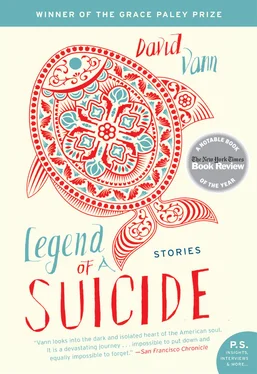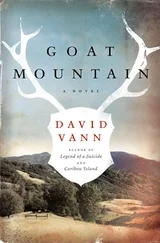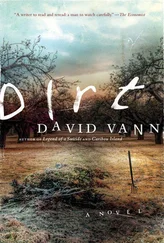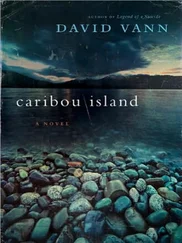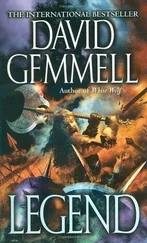No one would have guessed I was sighting in on neighbors and shooting out the streetlights. I was a straight-A student, in student government, sports, band, etc., but I came to live a double life for the year after his suicide.
I don’t think I’ll ever entirely understand that year. I told everyone my father died of cancer, and I didn’t see a therapist. I didn’t have a real conversation with anyone. Instead, I shot things, the guns a terrible substitute. A year of the most basic brutality, a year I’m lucky to have escaped without hurting anyone.
I was an insomniac — and would be for the next fifteen years — and as I lay wide awake in bed every night, I couldn’t help thinking over and over that the.44 Magnum had a hair trigger. I had fired it once, at maybe eleven or twelve years old, and though I had used both hands, it flew back so hard it nearly hit me in the face. But the scariest part was that it fired with only the slightest pressure on the trigger. It was difficult to put your finger on the trigger and not have it fire. So what I kept wondering was whether my father had really decided to kill himself. What if he was just thinking about it, just testing it, or what if he had one moment of deciding but it was only a brief moment and, with the hair trigger, that was enough. I wanted to hold that pistol in my own hands, feel the possibility, feel the heft of it and know what it felt like pressed against my head. And I’m glad now I didn’t have that opportunity.
I finally sold my father’s guns when I was in graduate school. I needed the money, but I also just didn’t want them in my life anymore. What I really wanted was for them never to have existed. But once I sold them, I was surprised by this terrible feeling that I had sold off a part of my father, because I have so little of him left. He vanished with his suicide. We sold our land, also, that hunting ranch, for peanuts, stupidly, and it was mostly the land that held our family’s history and that connected all of us every year, scattered now.
I still love my father, even twenty-nine years after his suicide. The feeling hasn’t diminished at all, hasn’t faded over time, but I have nothing left to attach it to. If I could hold his.300 Magnum now, would he come back to me, some closer memory, some echo of hiking with him through live oak and manzanita, watching him raise that rifle high over his head as we pushed through brush? If I remember that rifle, really focus on it, I can remember the sunlight on my father’s light-brown curly hair, receding, his lopsided grin as he looked down at me. But more than that, I can almost remember how the moment felt, what it was like to be there with him, to hunt with him, what it was like to belong. My father was what attached me to the world.
Have you Read?
More by David Vann
Caribou Island by David Vann
Available from Harper Perennial January 2011
Fault lines in the snow. A thin dusting, faint ridges raised up where the ice has cracked. No other footsteps, no tracks of any kind. Irene the only figure on a broad pan of white.
A SMALL ISLAND in a glacier-fed lake on the Kenai Peninsula of Alaska, Caribou is the setting for David Vann’s new novel, which explores the true story of the death of his stepmother’s parents by murder/suicide and the true story of his grandmother finding her own mother hanging from the rafters. These two family tragedies collide in unforgettable fiction.
Irene and Gary are in their mid-fifties, setting out to build a cabin on the island. They’ll build it by hand, without plans or advice, in good weather and in terrible storms, in sickness and in health, and they’ll punish each other along the way. Irene, driven by the abandonment of her mother’s suicide, will not see her husband clearly, and Gary, driven by thirty years of regret, will not see what’s coming. Their daughter, Rhoda, will try to save them, but her life is falling apart: Her fiancé is cheating on her with a younger woman. Their son Mark is too busy fishing and smoking pot to notice anything going on. As winter comes and Rhoda begins to fear what her mother is capable of, her father will push too far. Vann returns to his native Alaskan landscape to explore marriage, suicide, murder, infidelity, nostalgia, and the idea of Alaska itself.
A Mile Down: The True Story of a Disastrous Career at Sea by David Vann
National Bestseller
#4 Washington Post list
#7 Los Angeles Times list
“Damn exciting.”
— Stewart O’Nan
“Pure adrenaline.”
— Melanie Thernstrom
“As if one of the heroes of The Perfect Storm had lived to write his memoirs.”
— Julie Hilden
“At once memoir, confession, travel book, and thriller, David Vann’s A Mile Down is so vivid and intense you will dread to see it end…. The book is a testimony of passion and courage in deadly storms and scarier calms, of a man wrestling with his ghosts and gifts in the very shadow of paradise.”
— Robert Morgan
A Mile Down: The True Story of a Disastrous Career at Sea is a harrowing — and heartbreaking — true story of one ordinary man’s misadventures at sea. David Vann builds a ninety-foot charter yacht in Turkey, the ship of his dreams. But the war in Kosovo destroys his upcoming charter season, the Turkish builder takes advantage of him, and the boat begins falling apart as soon as it’s launched. Vann faces an unrelenting crush of disasters, bad luck, and ill will, yet remains in good spirits and picks himself up repeatedly to carry on. A storm near Casablanca tears his rudder off, a German freighter captain endangers the crew to go for a salvage claim, and finally a freak storm in the Caribbean sinks the boat a mile down. As the author’s debts escalate and his troubles multiply, he begins to wonder if he is merely repeating his father’s dreams and failures at sea. A Mile Down is an unforgettable true story of struggle and redemption by a writer at the top of his form.

Don’t miss the next book by your favorite author. Sign up now for AuthorTracker by visiting www.AuthorTracker.com.
DAVID VANNis a professor at the University of San Francisco. He is a contributor to Esquire, The Atlantic, Men’s Journal, National Geographic Adventure, The Sunday Times (London), and Outside , and the author of the bestselling memoir A Mile Down: The True Story of a Disastrous Career at Sea and Last Day on Earth: A Portrait of the NIU School Shooter, Steve Kazmierczak , winner of the AWP Nonfiction Prize. He is a recipient of a National Endowment for the Arts Fellowship and Wallace Stegner Fellowship. His website is www.DavidVann.com.
Visit www.AuthorTracker.com for exclusive information on your favorite HarperCollins author.
